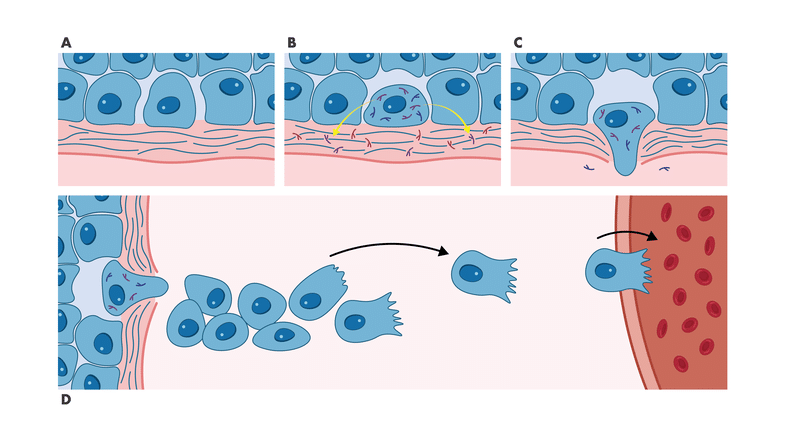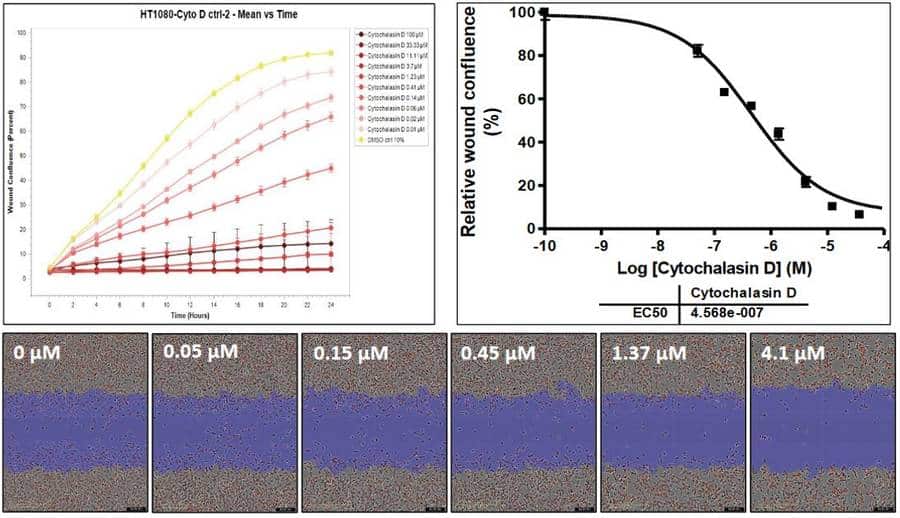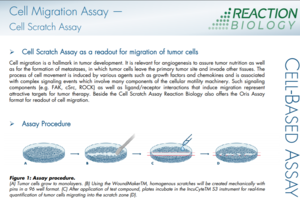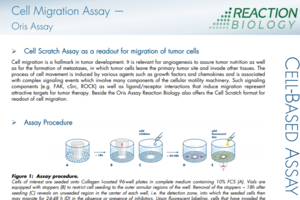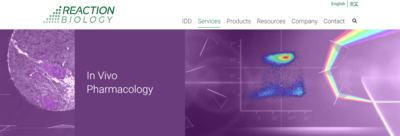Cell Migration Assays (Wound Healing Assay and Oris Assay)
Cell migration assays are suited for the investigation of drug potency to reduce tumor cell metastasis. The migration of tumor cells is initiated by providing a gap in the cell monolayer that the cells close via undirected migration. The ORIS Assay is performed with a stopper for cells to grow around, whereas the Wound Healing Assay is based on a scratch that creates a gap in the cell layer.
Cell migration is a hallmark in tumor development. It is relevant for angiogenesis to assure tumor nutrition as well as for the formation of metastases, in which tumor cells leave the primary tumor site and invade other tissues. The process of cell movement is induced by various agents such as growth factors and chemokines and is associated with complex signaling events that involve many components of the cellular motility machinery. Such signaling components (e.g. FAK, cSrc, ROCK), as well as ligand/receptor interactions that induce migration, represent attractive targets for tumor therapy.
The ORIS Assay and Wound Healing Assay may be used to characterize cell migration inhibitors and promoters. Both migration assays are valuable tools for academic researchers and pharmaceutical industries to determine the impact of new drug candidates on metastasis.
Reaction Biology’s tumor cell biology teams provide long-standing expertise in developing and running cell migration assays for standard compound screening and custom-tailored solutions. Get in contact today to discuss your research needs.
- High-throughput compatible
- Combination treatment is possible
- Two cell migration assay formats are available: ORIS Assay and Wound Healing Assay (also called Scratch Assay)

